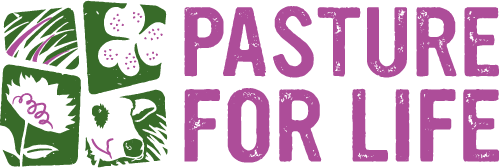Rose Dale, Manor Farm, Buckinghamshire 3/3
How do you monitor it?
In 2021, we started a project with environmental consultancy Pilio which completed a full ecological baseline of the farm. This included data collection on carbon, habitat, soil health and surveys of indicator species including birds, butterflies, bees and vascular grassland plants. This baseline will allow us to understand how biodiversity on the land is improving over time, and to understand areas where more improvement is possible – with repeatable and clear methodologies. Taking this evidence and data-based approach has also opened up more opportunities for biodiversity enhancement including the proposed Biodiversity Net Gain project.
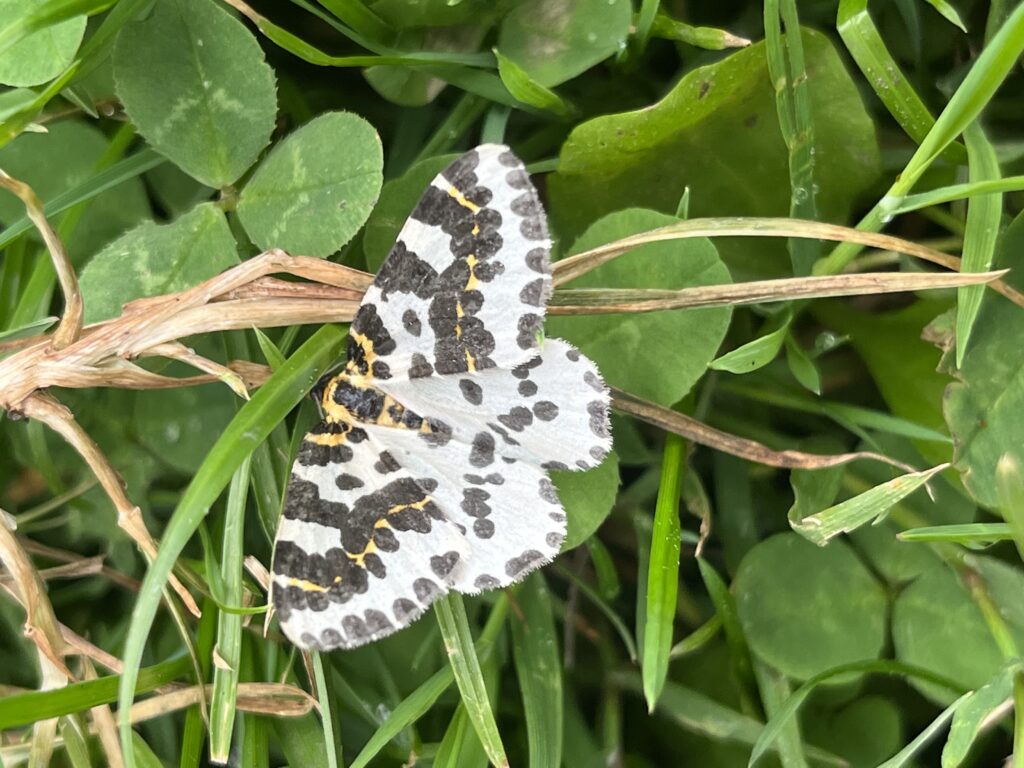 (Photo: butterfly)
(Photo: butterfly)
The following table shows the surveys that have been completed on the farm and at what time of year they were carried out. The surveys have been a mix of citizen science approaches and more in-depth expert surveys. For example, the bee and butterfly surveys followed the methodologies from the Bumblebee Conservation Trust and the vantage point survey followed the Big Farmland Bird count methodology.

In addition, we have several other surveys completed on the farm undertaken by various volunteer and local networks that include water quality, wetland species and bird identification. We have numbered reptile mats across the farm and at certain times of year, when the conditions are right, we go and check and record any species we see.
Are there any benefits to the farm that are directly attributable to the Pasture for Life approach and/or would be lost if there were no ruminant animals on the farm? In brief, what are the benefits from having ruminant animals on the farm?
It is still early days but we believe that the benefits are developing on our farm and, with continuing good management, will result in greater pasture productivity; and that mob grazing will bring greater biodiversity, greater soil fertility and greater drought resilience - ultimately benefiting my farm business. Pasture for Life focuses on natural farm health and enables a low input system which helps keep costs down and builds economic resilience – particularly important at a time of fluctuating energy and input prices.
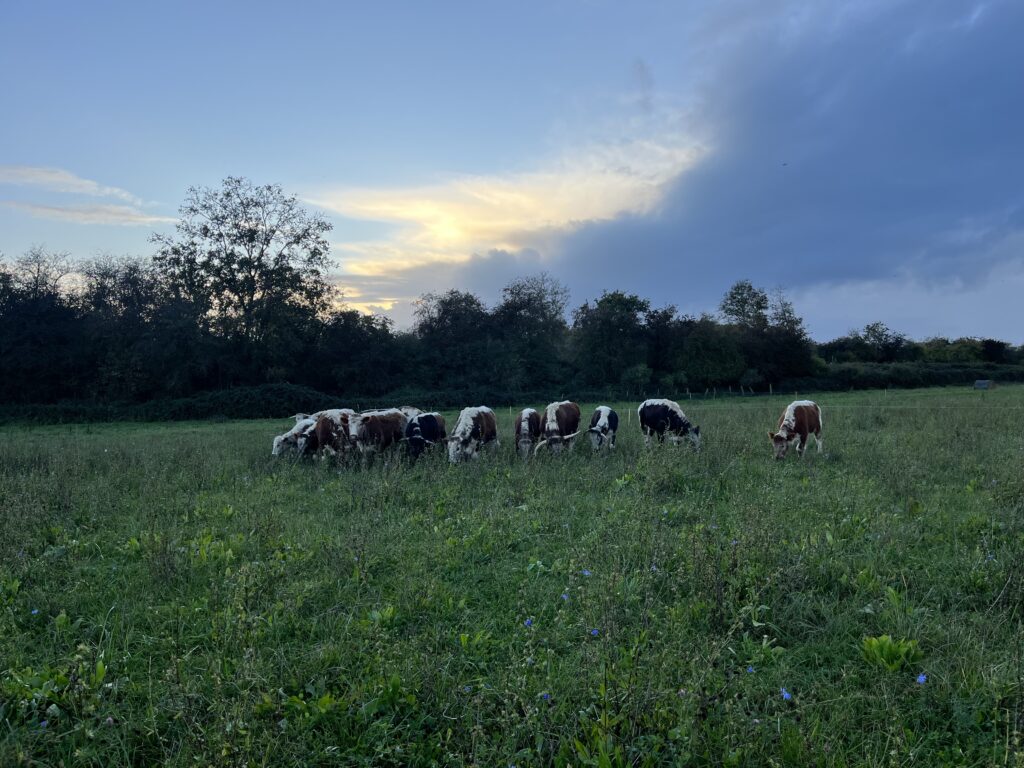 (Photo: cows mobgrazing)
(Photo: cows mobgrazing)
I can clearly see the science-based and on-the-ground evidence that grazing ruminants are good for grassland and soil health and that their presence promotes biodiversity. The swallows harvesting insects over my meadows grazed by livestock are not flying above the arable monocultures that make up so much of our farming landscape.
The holistic wisdom within the network of the Pasture for Life community is also very valuable, with real life experience from all the different environments in the UK. The network is generous and willing to help others and I have found it a great boon.
The Pasture for Life certification provides an essential verified standard, ensuring people are following good farming practice which can be communicated to the customer and provides confidence and rigour. It is essential that grass-fed means grass-fed – ensuring the term is being valued, with increasing understanding of the benefits to food nutrition and human health.
I look forward to Pasture for Life being more widely known and to it being supported by supermarkets and other parts of the supply chain.
What lessons have you learnt and would like to share with others?
Above all, I have learnt the vital role of the grazing ruminant in establishing and sustaining productive and biodiverse pasture and healthy soil. This is not surprising since herbivores and pasture species co-evolved over millennia. You cannot have one without the other. To encourage a healthy grassland, with all the benefits of biodiversity and carbon capture benefits, you need to have grazing ruminants.
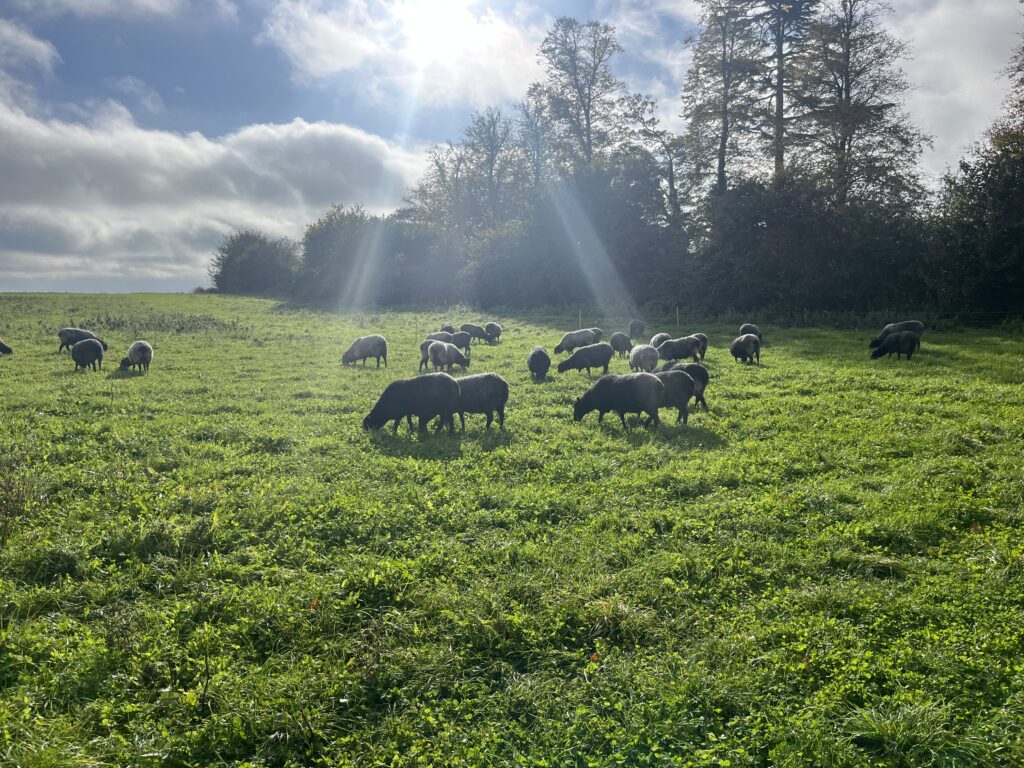 (Photo: Gotland sheep)
(Photo: Gotland sheep)
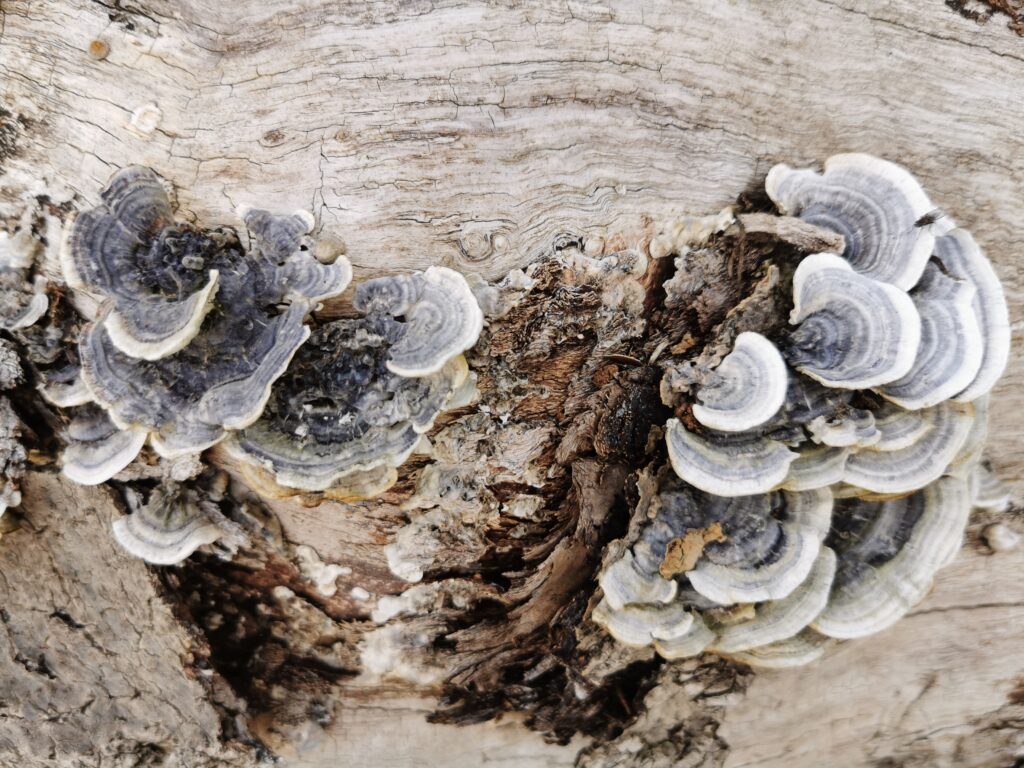 (Photo: leaving wood piles)
(Photo: leaving wood piles)
I have learnt that intelligent farming is about working with nature and not against it and with low inputs which together provide resilience for both the environment and the business.
We need to stay away from vague statements about simply being nature positive. We need to think long-term in our work in addressing the climate and ecological emergencies. Having good data about our farms and ecosystems will be essential not only to inform us how we can change our practices for the better but also to enable us to share that knowledge and experience with the wider farming and non-farming communities.
More about Rose Dale’s Organic Farm here.
Read about the other biodiversity case studies.
